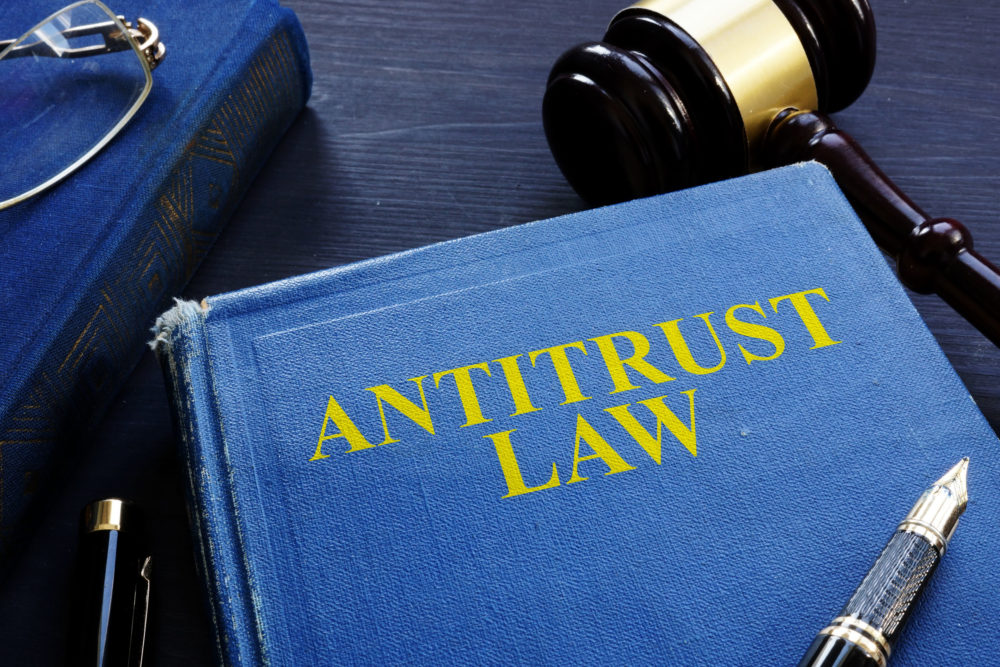The recent surge in class action lawsuits has left many businesses and their legal teams scrambling to keep up with the ever-evolving legal landscape. Join Gary S. Graifman Esq., of Kantrowitz, Goldhamer & Graifman, P.C. as they delve into the latest developments in class action litigation and reveal essential best practices. This unique opportunity is designed to empower attendees with the knowledge and strategies needed to not only navigate the complexities of this dynamic legal field but also secure favorable outcomes for their clients.
Employment Law Class Action Update: Analyzing Recent Trends and Developments
lazupardo2024-05-02T09:59:18-04:00Employment law class actions remain a pivotal sphere within the legal domain, exerting significant influence on businesses, employees, and the overarching legal fabric. Keeping abreast of the ever-evolving employment law class action developments isn’t just prudent—it’s an imperative for legal practitioners, businesses, human resources personnel and anyone touched by these judicial proceedings.
Significant Class Action Trends and Developments
lazupardo2023-03-03T01:50:03-05:00Over the years, the number of class action lawsuits has significantly grown in both federal and state courts. As regulatory developments continue to emerge and impact litigation practices, practitioners are confronted with significant challenges. Hence, they must keep themselves abreast of any development in this field of law. Likewise, implementing a sound class action strategy is critical to dodge any litigation pitfall.
Securities Class Actions in the Crypto Space: Crucial Developments
Joenel2023-03-29T05:28:34-04:00Heightened regulatory scrutiny and continued volatility in the digital asset market have led to a significant uptick in the number of securities class action suits involving cryptocurrencies. With emerging court decisions and litigation and enforcement challenges on the horizon, practitioners and companies must keep track of current and future developments in the cryptocurrency space to understand how to navigate this complex and evolving landscape.
Class Certifications: Trends, Developments and Effective Strategies
Iwork OJT2023-01-20T04:17:35-05:00Class certification under the Federal Rule of Civil Procedure 23 has been a complex and challenging battle for plaintiffs and defendants alike. With the shifting legal interpretation and stringent analysis, the certification process has become increasingly difficult and costly.
Class Action and Complex Litigation: Demystifying Trends, Developments, and Legal Challenges
Iwork OJT2022-09-29T04:48:11-04:00With the evolving regulatory and compliance landscapes, class action litigation has significantly raised specific legal challenges and vulnerabilities to businesses across industries. In addition, although courts are generally adjusting the rules applicable to the concerns of class action lawsuits, several unsettled and divergent viewpoints can vastly cause critical issues and complications in this complex and multifaceted area of law.
Trends and Developments on Antitrust Class Certification: Legal and Economic Issues Explored
Iwork OJT2022-09-29T05:14:42-04:00Today's legal landscape presents a higher degree of complexity and challenges for antitrust class action certifications. Several legal and economic issues that require crucial understanding and analysis of the law pose risks for businesses and practitioners alike. Furthermore, with the recent decisions and ongoing court cases constantly shifting the process, it is becoming more imperative for companies and their counsel to be conversant with the latest trends and developments in class certification rules and provisions.
Data Breach Class Action Litigation on the Rise: Winning Strategies
Iwork OJT2022-09-30T01:51:28-04:00Data breaches in the U.S. have shown no signs of slowing down in the last several years, neither have the wave of class action cases associated with these. Recent breaches include some of the largest companies such as LifeLabs, Yahoo, Equifax, and Google LLC. Such breaches, as well as the infringements incorporated with it, can impose tremendous burdens on banks and credit card companies that have to respond to a flood of fraud claims and canceled cards.
Trends and Developments in Antitrust Class Certification: Best Strategies in Light of Recent Court Rulings
Iwork OJT2022-09-30T02:55:49-04:00Antitrust class certification has become more intricate over the years. The proliferation of lawsuits, court rulings, and regulatory trends continue to shed light on the evolving process and analysis of class certification.
Securities Class Action Litigation in the 2020 Landscape: What You Should Know and Do
Iwork OJT2022-10-24T04:36:22-04:00While securities class action filings maintained a historic three-year high through the end of 2019, largely driven by standard (Rule 10b-5, Section 11, and/or Section 12) cases, a decline in filings was observed in Q1 2020. Recent decisional law and critical trends in securities class actions, and the emergence of new “event-driven” filings, foreshadow an active year of key issues being fleshed out in courts around the country. Paramount among these issues are questions about whether certain types of cases can be filed in state courts and the role that Delaware corporations can play with forum selection clauses in trying to prevent that. Plaintiffs will push to assert scheme liability causes of action under the Securities Exchange Act of 1934 in an effort to broaden the universe of defendants they can hold accountable.
Trends and Updates on Class Action Litigation: Hot Buttons During the COVID-19 Crisis
Iwork OJT2022-10-24T04:47:29-04:00The class action litigation landscape has been drastically affected by the COVID-19 outbreak. The pandemic resulted in a wave of class action filings over the last six months touching nearly every industry and sector.
Employment Class Actions: The 2020 Landscape Explored
Iwork OJT2022-10-28T01:20:09-04:00Class actions alleging labor law violations continue to hound employers throughout the country. As the volume of these cases increases, new court rulings also continue to emerge and reshape the litigation landscape. Anticipated court rulings which employers should follow in 2020 include Retirement Plans Committee Of IBM v. Jander, et al., Intel Corp. Investment Policy Committee v. Sulyma, et al., and Thole, et al. v. U.S. Bank, N.A.
What’s New in Gig-Worker Classifications: Exploring Trends and COVID-19 Implications
Iwork OJT2022-10-28T02:06:45-04:00Securities class action litigation have continuously skyrocketed over the past years. This trend is expected to grow in fiscal year 2020 as companies constantly engage in global expansions making securities markets more seemingly interconnected. With this, companies are encouraged to prepare for significant changes as well as potential risks and pitfalls. Being updated with the trends and recent court decisions to mitigate the possibility of setbacks is essentially recommended.
Trends, Developments, and What Lies Ahead the Securities Class Action Landscape in 2020
Iwork OJT2022-10-28T02:21:01-04:00Securities class action litigation have continuously skyrocketed over the past years. This trend is expected to grow in fiscal year 2020 as companies constantly engage in global expansions making securities markets more seemingly interconnected. With this, companies are encouraged to prepare for significant changes as well as potential risks and pitfalls. Being updated with the trends and recent court decisions to mitigate the possibility of setbacks is essentially recommended.
Looking Ahead: The Future of Class Action Litigation
TKG2023-01-19T03:01:08-05:00The number of class action lawsuits across industries has significantly proliferated over the years, creating a profound impact on the regulatory and litigation landscapes. Because of this, the climate of class action litigation continues to remain uncertain and the need to be abreast of any emerging development must always be underscored. More importantly, businesses and their counsel must keep themselves in the know of the latest regulatory updates and up-to-date litigation tools and strategies to successfully win this type of lawsuit.















